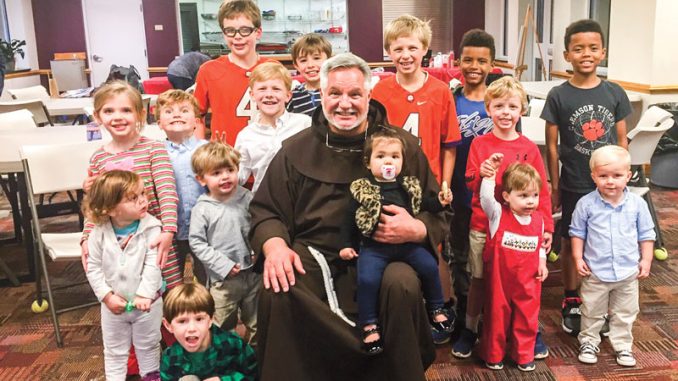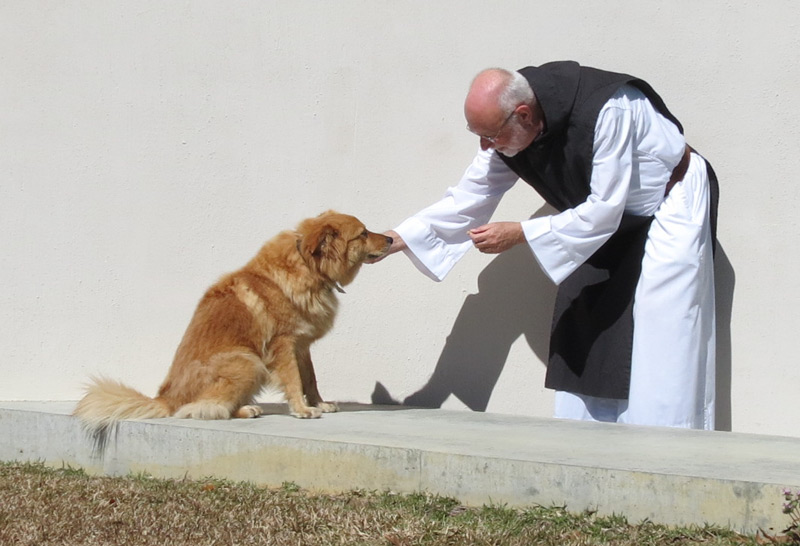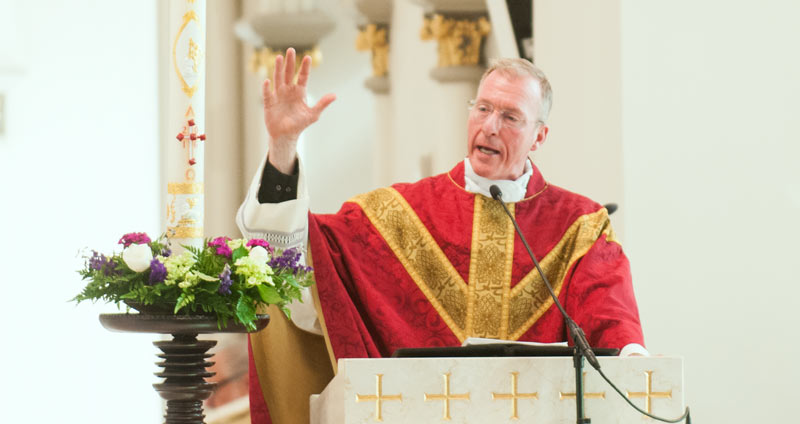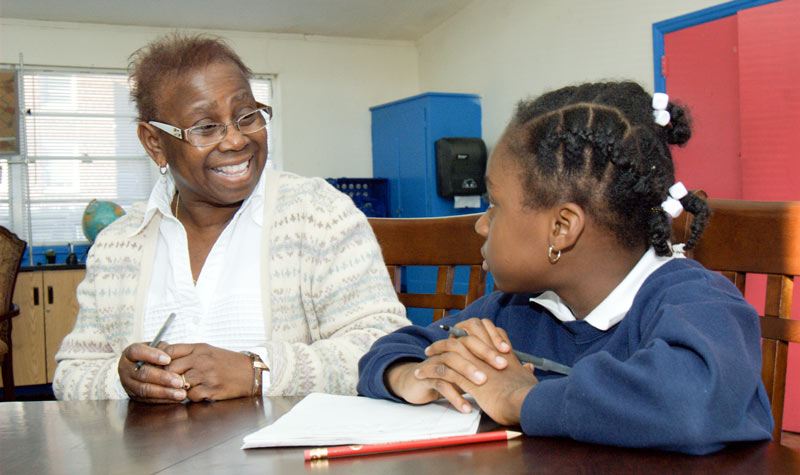
GREENVILLE—Franciscan Father Patrick Tuttle’s resumé could easily be from a priest who has served far longer than 25 years.
Especially noteworthy is what he, and his parish, have accomplished together in his past 15 years as pastor of St. Anthony of Padua Church.
When he arrived in 1994, St. Anthony was a small parish of around 200 registered members, serving an area that was primarily low-income, African American Greenvillians.
Today, parish membership tops 1,000, a cause for celebration as Father Tuttle and the parish community celebrate his 25th jubilee.
“The ministry here has been very fruitful,” Father Tuttle said recently, while driving to celebrate morning Mass at the Monastery of St. Clare in Travelers Rest, a trip he makes four times a week.
Born in Hartford, Conn., Father Tuttle is from a family of six children, with four sisters and a brother. He also has nine nieces and nephews, all beautiful children, he said.
Father Tuttle was called to serve even as a teen, when he was youth minister at his local church, St. John Fisher, before graduating high school there. He also started a couple of businesses, including carpet cleaning, to make ends meet.
“As one of six kids, my family wasn’t of significant financial means,” he said. That inspired his businesses and his time as youth minister at the church.

“Peer ministry was big at that time,” Father Tuttle said. It was a ministry he enjoyed, an enthusiasm his pastor and others noted as well, to the point of offering to pay for his education at Siena College in Albany, N.Y.
He earned an undergraduate degree at Siena, with a major in social work and a minor in philosophy. But it was his exposure to the Franciscans that stood out during that time.
“I was very taken by the Friars; their life together and their work,” he said. “Some of them were university professors, others were involved in politics and government. They were a remarkable group of men who laughed harder than any group I had ever heard laugh. They prayed beautifully together and then they went out and worked in very impactful circumstances.”
Father Tuttle joined the Franciscans upon graduating Siena College. Ironically, his first assignment following his ordination sent him back to Siena College, where he served as a campus friar. Among the students was his youngest sister, Margaret.
He also served as campus minister at Duke University and St. Bonaventure University in New York.
In 2005, Father Tuttle was sent to the South, an assignment he welcomed.
“I remember the Church being very mission focused and evangelistic because of the small number of Catholics at the time,” he said.
The young priest was assigned as campus minister at Furman University and as a supply priest to area parishes. During his time at Furman, the school’s CSA membership grew from 20 students to more than 400, a trend that mirrors his time at St. Anthony.

Father Tuttle is proud of his parish, which is actively engaged in ministry for the poor and disenfranchised in Greenville County.
Still, more needs to be done within the rapidly changing community, he said. What he calls his three “rallying cries” are gentrification, predatory lending and quality education; issues he feels called upon to change through action and prayer.
Poor Clare Sister Mary Ann describes Father Tuttle as “very dedicated” to his life as a Franciscan.
“Father Pat is very generous with his time,” Sister Mary Ann said. “I know he’s very busy and I don’t know how he does it all.”
His drive to help stretches back to his early formation days and the influence of Franciscan Father Dan McLellan, who was director of formation for Holy Name Province then and is now pastor of St. Andrew Church in Clemson.
“He has been a very steady, powerful and effective face of the Franciscan order for me,” Father Tuttle said, adding that they talk regularly.
Though his future is in God’s hands, Father Tuttle said he enjoys his ministry at St. Anthony.
“I’ve never been in a ministry where I’ve learned so much, and I’m drawn to learn more, especially about racial issues and the ways the church can be respected by and affect the lives of a city,” he said.
“The treasure that the African American Church has to give to the rest of the Church is wholly unknown, and the wider church suffers a massive poverty without it,” he continued.



